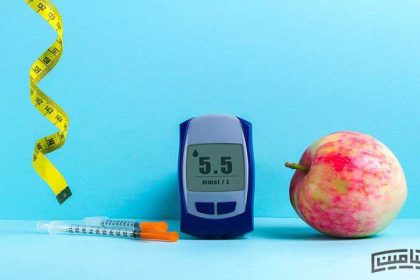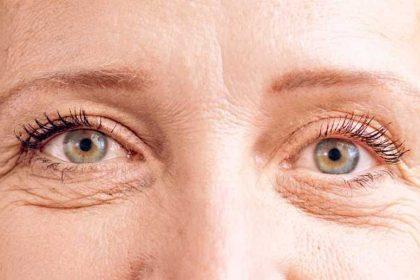Nervous overeating, also known as butumia, is one of the disorders of eating. This disorder can affect any person at any age, although it is often developed during adolescence or early adulthood.
If you have this problem, you may feel that you cannot stop or control the process. But don’t be disappointed. Every problem has a cure. This can help you solve the problem of your butalma or your relatives.
What is Nervous Eating?
In Bullia we see a cycle of annoying events. Initially, the person eats a lot of food in a short period of time (nervous overeating) and then, over another period, tries to remove all the food he ate from his body (cleansing). Cleansing can be through compulsory vomiting, laxatives or diuretics, dumping, excessive exercise, fasting, or very difficult diets for the next few days.
Nervous overeating is a serious illness and can threaten one’s health and even life. Nervous overeating can also cause obsession with the body’s weight and shape, and these obsessive -compulsive disorder can become worse and more severe, leading to depression, severe anxiety of bolima worse.
How do we find out that we are really hungry or we get nervous?
One of the first steps to detect hunger and nervous overeating is to identify and distinguish real and unrealistic hunger properties. We now introduce you to the features of both modes so you can easily recognize them.
Nervous overeating properties
Unexpected and nervous hunger has the following features, and if you see these symptoms, be careful and use the strategies and your doctor’s help to control it.
- Suddenly comes;
- Must be satisfied immediately; (This hunger doesn’t have patience)
- It seems that only the desire to have a particular food;
- You may have recently eaten and your belly is full;
- Hunger gives you hunger after a unpleasant and uncomfortable event.
Features of real hunger
Real physical hunger also has the following features. If you see these symptoms, your body needs food, be sure to eat your meal.
- Will gradually appear;
- Relates to the body, not feelings and morale;
- You are willing to eat any food to make it even empty bread.

Symptoms of nervous overeating
If you only see some of the symptoms of Bullia in yourself or your loved ones, take action soon. Symptoms and symptoms of nervous overeating may include:
- Fatigue and reduced energy
- Throat always inflamed or painful
- Life in fear of weight gain
- The frequent cycle of eating too much food in one meal
- Use of laxatives, diurets or dumps after overeating
- Being involved with the shape of your body and weight as obsessive
- Fasting, restricting calories or exotic and extreme diets
- Dental problems caused by enamel erosion due to high vomiting
- Overuse of dietary supplements or vegetable products to lose weight
- Mandatory and deliberate vomiting or excessive exercise to prevent weight gain after overeating
Mental properties of Bouemia
Most people with eating disorders also have certain mental properties; Including:
- Low self -esteem
- Feeling disabled
- Fear of being obese
- A sense of guilt, disgust and depression
- Severe dissatisfaction with the shape and size of the body
- High -risk behaviors such as drug use or alcohol may also occur.
Cause of nervous overeating
Various reasons and factors can contribute to the incidence of nervous overeating. In fact, Bouemia has no known cause. However, it is thought that a set of factors such as genetics, family history, social or cultural effects, or perhaps a traumatic event in the past (trauma) can affect it.
A year -long study, as well as some older research, show that neurological overeating may also be associated with serotonin deficiency in the brain. This important neurotransmitter helps regulate mood, appetite and sleep.


How does nervous overeating affect health?
Nervous overeating can be very dangerous if you are not treated. Bollimia can cause serious damage to the body. The long -term effects of this disease are:
- Kidney damageI see
- Reduce libido
- Permanent damage to the tooth.
- Damage to the intestine and stomach
- Desire or action to commit suicide
- Irregular menstruation
- Increased risk of heart problems
- Damage to the acoustic and throat cords
- Addiction, substance abuse or high -risk behaviors
- Depression, anxiety, obsessive -compulsive disorder and other mental health problems
Fortunately, many physical effects of nervous overeating are reversible and treatable or can be prevented from worsening them. But Worse than physical complications, the mental complications are very annoying. This mode puts the person in a hell of overeating. So even one day should not be delayed in the treatment.
The methods of treating nerve overeating
There are several ways to treat nervous overeating and you can choose one of these paths or a set of them. We are now reviewing all these ways.
Refer to a good specialist
See a good physician for the treatment of nervous overeating. He will pay attention to your physical and mental needs. You may need consultation and medication for treatment. Often, experts help you get rid of this problem in a short time.
Antidepressants (such as fluoxetine) are approved by the US Food and Drug Administration (FDA) for the treatment of nerve overeating, and doctors sometimes recommend these drugs to treat the disease.
Counseling
The advice is very helpful! The consultant helps you learn how to manage your misconceptions and thoughts, and if you have a overeating meal, do not go for cleansing. You have to share irrational thoughts and unhealthy behaviors with the consultant as soon as they can help you.
Correction of food habits
The other part of the treatment is related to food. Although eating disorders are often not related to food itself and are related to a number of other contextual thoughts and feelings, we have the food itself with the food itself.
Here you are taught good eating habits. You work with a nutritionist to learn to identify your body’s signals of hunger and satiety. The nutritional counselor helps you stabilize your weight and gain a healthier attitude towards food.


Prevention of nervous overeating
Although there is no reliable way to prevent the disease, you can lead yourself or another to healthier behavior or treatment before worsening the situation. Here we tell you how you can do it.
- Teach your children to have a healthy weight and not to make the body’s beauty value for them;
- Have regular and enjoyable family meals;
- Avoid talking about weight at home and instead focus on having a healthy lifestyle;
- Avoid strict diets and inappropriate methods for weight loss. (Such as long fasting, using weight loss or laxative supplements, compulsory vomiting)
- Talk to your consultant. The counselor can identify the basic indicators of eating disorder and help prevent it from progressing.
- If you realize that one of your relatives or friends has nutritional problems that can lead to nervous overeating, talk to them and support them.
- Have a relationship with others. The support of friends and family can help you overcome unhealthy habits and feel better about yourself.
- Avoid destructive stimuli. Avoid the balance, mirrors and unrealistic photos available in cyberspace.
- Having a healthy lifestyle and following a healthy and healthy exercise-nutrition program can be very helpful. Talk to phytamin experts, they will definitely offer you the best program.
Final speech
Nervous eating or butumia is an annoying problem that can be treated in a variety of ways. The important thing is to know the disease well and identify the difference with real hunger. In this article, we mentioned all the symptoms and methods of prevention and treatment of Bolimia.
Resources: beatetingdisorders – hopkinsMedicine
RCO NEWS
RCO
















